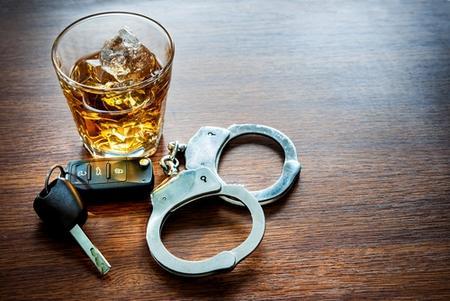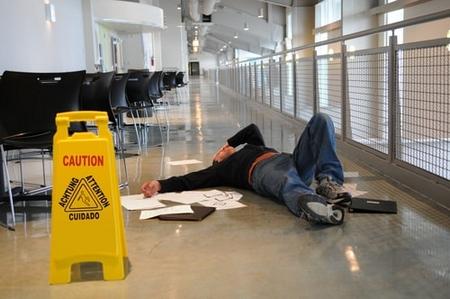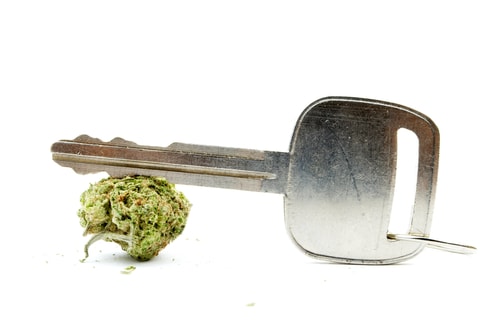Recent Blog Posts
Can Illinois Residents Face Charges if They Violate COVID-19 Orders?

There is no denying the massive impact COVID-19 has had on millions of people all over the world. The new (novel) coronavirus that reportedly originated in China has now spread to other countries, including the United States. The influx of confirmed cases and reported deaths led the World Health Organization (WHO) to declare it a global pandemic. Schools, along with non-essential businesses such as shopping malls, movie theaters, bars, restaurants, and sports venues have been closed temporarily. Health and government officials are urging people to practice “social distancing” in an effort to stop the spread of COVID-19. In many cities and states, there are “shelter in place,” isolation, or quarantine orders in place to protect the health and safety of its citizens. It is important to be aware of these restrictions to avoid any criminal charges.
What Is Overexertion and Bodily Reaction in a Work-Related Injury?
 Following an injury at work, you may find yourself worrying about the time—and wages—lost at work, on top of the physical effects you will have to deal with. Even small injuries on the job can turn your whole life upside down, making simple daily tasks appear extraordinary.
Following an injury at work, you may find yourself worrying about the time—and wages—lost at work, on top of the physical effects you will have to deal with. Even small injuries on the job can turn your whole life upside down, making simple daily tasks appear extraordinary.
Accidental injury can occur at any time, to even the most diligent workers, and the Illinois Workers’ Compensation Commission recorded nearly 38,000 injuries between 2015 and 2016. Topping the list was the category “Overexertion and bodily reaction,” representing an astonishing 40 percent of all recorded injuries. However, it might not always be readily apparent what types of injuries fall into this category of overexertion and bodily reaction. Below is an explanation of this type of workplace injury and how it applies to seeking workers’ compensation benefits.
What Are the Effects of a Brain Injury Caused by a Car Accident?

March is National Brain Injury Awareness Month in the United States. Recent studies have put a spotlight on head injuries, especially concussions related to sports. However, another common way someone can suffer head trauma or injury is by being involved n a car accident. In some scenarios, a vehicle occupant can hit his or her head on the window, door, or dashboard after colliding with another car. In other cases, a passenger may be ejected from the automobile, slamming his or her head on the pavement or even a tree or lamppost that is close to the roadway. If you are involved in a vehicle collision, it is imperative that you seek medical attention even if you do not feel the immediate effects of a brain injury. Your next step should be to consult an experienced personal injury lawyer to explore your options for seeking compensation.
When Is an Alcohol Treatment Program Required After an Illinois DUI?
 Most people understand the dangers associated with impaired driving, yet many car accidents with injuries are caused by driving under the influence (DUI) of drugs or alcohol. Statistics from the National Highway Traffic Safety Administration (NHTSA) show that in 2018, more than 10,000 people died in drunk-driving crashes in the United States. The state of Illinois takes drinking and driving offenses seriously.
Most people understand the dangers associated with impaired driving, yet many car accidents with injuries are caused by driving under the influence (DUI) of drugs or alcohol. Statistics from the National Highway Traffic Safety Administration (NHTSA) show that in 2018, more than 10,000 people died in drunk-driving crashes in the United States. The state of Illinois takes drinking and driving offenses seriously.
Any driver with a blood alcohol content (BAC) of .08 percent or higher may be arrested for DUI. Penalties can range from license suspension to fines to prison time. In certain cases, an offender may be ordered to attend an alcohol treatment program as part of his or her punishment as a form of rehabilitation.
Evaluation and Hearing
What Are the Most Common Slip and Fall Injuries in Illinois?
 A “slip and fall” injury may sound minor, but such an injury can be debilitating for the victim. A person can suffer a serious injury as a pedestrian, a patron at a store or restaurant, or even as a visitor in someone else’s home. In some cases, proving premises liability can be complicated. Illinois premises liability law only applies when an injury is due to an unsafe condition that the property owner or operator knew about or should have known about and corrected. It is important to understand the laws regarding this if you are ever hurt under these circumstances.
A “slip and fall” injury may sound minor, but such an injury can be debilitating for the victim. A person can suffer a serious injury as a pedestrian, a patron at a store or restaurant, or even as a visitor in someone else’s home. In some cases, proving premises liability can be complicated. Illinois premises liability law only applies when an injury is due to an unsafe condition that the property owner or operator knew about or should have known about and corrected. It is important to understand the laws regarding this if you are ever hurt under these circumstances.
The Premises Liability Act
Under Illinois law, the Premises Liability Act outlines what duty property owners have to individuals who enter their premises. If a property owner fails to take reasonable care to keep their land or structure safe, the state of Illinois may hold them accountable for damages that could occur to guests. This includes both individuals who are invited by a property owner (invitees) and people who are there for their own enjoyment (licensees).
What Are the Criminal Penalties for Drug Trafficking in Illinois?
 Although recreational marijuana was legalized in Illinois as of January 1, 2020, there are still many other drugs that citizens cannot possess or distribute in the state. Under Illinois law, it is unlawful to manufacture, own, sell, or traffic controlled substances such as heroin, cocaine, methamphetamines. Drug trafficking is a serious crime in which a person knowingly brings a controlled substance for the purpose of delivery or with the intent to deliver it elsewhere.
Although recreational marijuana was legalized in Illinois as of January 1, 2020, there are still many other drugs that citizens cannot possess or distribute in the state. Under Illinois law, it is unlawful to manufacture, own, sell, or traffic controlled substances such as heroin, cocaine, methamphetamines. Drug trafficking is a serious crime in which a person knowingly brings a controlled substance for the purpose of delivery or with the intent to deliver it elsewhere.
Offenders are subject to serious criminal consequences, including prison and steep fines. These penalties are often doubled compared to drug possession charges. However, to be convicted of drug trafficking, the prosecution must prove the defendant knew he or she was bringing the controlled substance across state lines in addition to the ultimate goal of its delivery within or outside of the state.
What Are the Long-Term Effects of a Dog Bite or Animal Attack?
 Most of the time, family pets are friendly and loving. That is why dogs are often called “man’s best friend.” However, there are instances where a dog or other animal may become aggressive and attack a person—even its owner, in some cases. Injuries suffered can range from a scratch to severe lacerations and nerve damage. An animal bite can also result in serious or even fatal infections.
Most of the time, family pets are friendly and loving. That is why dogs are often called “man’s best friend.” However, there are instances where a dog or other animal may become aggressive and attack a person—even its owner, in some cases. Injuries suffered can range from a scratch to severe lacerations and nerve damage. An animal bite can also result in serious or even fatal infections.
Under the Illinois Animal Control Act, if someone is injured by a dog or another domesticated animal, the pet owner may be liable for the victim’s injuries. The law applies to situations where the victim was neither trespassing nor provoking the animal in any way.
Symptoms of Infection
At first glance, a dog bite victim may not think his or her injuries are life-threatening. However, they may experience symptoms later that signify a more serious condition. Some of the common symptoms of infection include:
What Kind of Offenses Constitute Child Endangerment in Illinois?
 Although you may have heard the phrase “child endangerment” before, you may not know exactly what it means. Because the definition of child endangerment encompasses a few different criminal acts, offenders may engage in a wide variety of conduct. Child endangerment generally refers to an action or inaction that causes a child to suffer psychological, emotional, or physical abuse.
Although you may have heard the phrase “child endangerment” before, you may not know exactly what it means. Because the definition of child endangerment encompasses a few different criminal acts, offenders may engage in a wide variety of conduct. Child endangerment generally refers to an action or inaction that causes a child to suffer psychological, emotional, or physical abuse.
Under Illinois law, an individual may be found guilty of child endangerment if he or she knowingly causes or allows the well-being of a child under the age of 18 to be endangered. This can also include causing or permitting a child to be placed in a situation that endangers the child’s life or health. In some cases, false allegations or unintentional acts could result in these types of criminal charges, so it is critical to seek legal counsel if you or someone you know is facing these serious charges.
What Are the Signs of Nursing Home Neglect and Abuse?
 Studies show that people are living longer these days compared to generations past. Nursing homes, memory care facilities, and assisted living centers are popping up in almost every city to meet the demand for an aging population. Many families carefully research what these extended-care homes can offer to their parents, grandparents, or other relatives. Whether someone needs assistance due to age, dementia, or any other kind of disability, there is a certain level of expectation that your family member will be well taken care of and in a safe place. Sadly, patients can be neglected and even abused on a regular basis. It is important to recognize the injuries that are commonly caused by nursing home negligence to prevent further harm to your loved one. In some cases, he or she might be entitled to compensation or damages for pain and suffering.
Studies show that people are living longer these days compared to generations past. Nursing homes, memory care facilities, and assisted living centers are popping up in almost every city to meet the demand for an aging population. Many families carefully research what these extended-care homes can offer to their parents, grandparents, or other relatives. Whether someone needs assistance due to age, dementia, or any other kind of disability, there is a certain level of expectation that your family member will be well taken care of and in a safe place. Sadly, patients can be neglected and even abused on a regular basis. It is important to recognize the injuries that are commonly caused by nursing home negligence to prevent further harm to your loved one. In some cases, he or she might be entitled to compensation or damages for pain and suffering.
How Does the New Illinois Marijuana Law Impact DUI Cases?
 The state of Illinois passed a new law that made recreational marijuana legal as of January 1, 2020. However, citizens should understand the restrictions attached to it and how this relates to medicinal use, driving, and potential DUI charges. People aged 21 and over are allowed to purchase up to 30 grams (or 500 milligrams of THC-infused products) of the drug from licensed retailers. They can smoke the substance in their own homes and on the property of certain cannabis-related businesses.
The state of Illinois passed a new law that made recreational marijuana legal as of January 1, 2020. However, citizens should understand the restrictions attached to it and how this relates to medicinal use, driving, and potential DUI charges. People aged 21 and over are allowed to purchase up to 30 grams (or 500 milligrams of THC-infused products) of the drug from licensed retailers. They can smoke the substance in their own homes and on the property of certain cannabis-related businesses.
Regardless of the new law, motorists are not permitted to operate a vehicle while under the influence of drugs or alcohol. Penalties for this criminal offense can range from fines, loss of driving privileges, and prison. It is important to know that you can be charged with DUI after using marijuana, even though the effects of it may be different than alcohol.
 815-727-0100
815-727-0100













